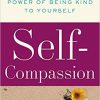I can pinpoint a moment when I came to believe that depression was not just an illness that struck from time to time but part of my identity as a person. I was talking with a friend one day about how big a problem depression had become. He thought it must be brought on by feelings that life had no meaning. I told him it wasn’t like that at all. It wasn’t caused by anything but kept coming back on its own, for no apparent reason.
When I said those words, I suddenly realized that there was very little in my life that had not been influenced by depression. It was at the center of everything I thought about and tried to do.
I didn’t just get depressed. I was a depressed person.
It was David Karp’s Speaking of Sadness that summarized this realization as taking on an illness identity. I mentioned his ideas briefly here a few years ago and more extensively in this recent post at Health Central. Based on interviews with 50 people living with depression, he found a pattern of four broad stages that each person went through in dealing with the illness that led to this new identity.
* First comes a period of inchoate feelings when you notice a number of problems long before you have any idea about depression, or even the words to describe it.
* Next comes a recognition that these are serious problems. You start to think that “something must really be wrong with me.”
* Then a crisis happens. You’re in more pain and chaos than you’ve ever known. Things seem so out of control that you know you need some sort of help. That’s when you get into the world of mental health professionals and receive a diagnosis of a depressive disorder.
* The fourth stage is coming to grips with long-term depression. Something changes as you go through recurring episodes and perhaps find that treatment isn’t getting the job done. You start to think of depression as part of who you are. As Karp puts it, you develop a depression identity. Then you need to find a way of living with it indefinitely. Karp finds that people tend to go in one of two broad directions as they adapted to the chronic illness.
Some accepted depression as their dominant condition that was occasionally interrupted by periods of partial recovery. Others believed the opposite, that they were basically healthy but sometimes got depressed. They tended to recover completely after each episode and believed that the recovery periods could be extended into a permanent state.
However, these were not static beliefs. Each person went through critical times when new crises or information forced them to redefine themselves and also reinterpret their previous experience. These are a few of the typical identity problems they dealt with, as many of us do.
Diagnosis. Finding out that you have a diagnosable condition shared by millions is often an enormous relief. It enables you to make sense of confusing, frightening, even chaotic experience. Now you have a name for it that satisfies a basic need to see your life, past and present, as having some kind of meaning.
Recurrence. Understanding that you are now and perhaps have been depressed in the past is one thing. Looking ahead to a future of recurring depression is quite another. There’s often a lot of sensitivity about the words used to describe the condition since they now feel more like permanent labels. Many cannot accept the idea that they have a mental illness. Some feel better with “disorder” or settle on “condition” as a word carrying less stigma.
Others take comfort in the idea that they are sick with a disease caused by a chemical imbalance in the brain. It has to be managed with medication like any other chronic disease such as diabetes or lupus. Anyone can get a disease. That concept carries none of the stigma of being mentally ill.
Ineffective Treatment. When medication, therapy and other recommended treatments fail to end the illness, most go through another crisis of having to redefine their experience. I well remember the relief I felt when I learned that I was probably “treatment resistant.” Suddenly I had an explanation that kept me from giving up hope that ultimately the right treatment would come along. Life became a continuing experiment with new medications and reading up on the latest innovations, like deep brain surgery or transcranial magnetic stimulation.
Long-Term Coping. Eventually, you have to find a way you can live with to explain depression over the long-term. This explanation becomes the basis for understanding what your life is all about. David Karp found a great range of attitudes and meanings. In paraphrase, these are some of the typical beliefs people shared with him.
- Depression has a power over me that controls what I do. I can’t escape it and somehow have to adapt.
- I know this will be with me for the rest of my life and that I’ll be taking medication forever. But the treatment has helped me reach a balance. Most of the time I’m very functional, but I know sooner or later a really bad depression will knock me down again. I can live with that.
- It’s like there’s a happy me and a sad me that take turns in my life. I’ve gotten used to it.
- I really think I’m having a reaction to adverse events in my life and that counseling and medication will get me through this. Eventually I’ll find a way of feeling better that I can maintain.
- Depression has been an important part of my spiritual growth. I don’t follow any particular religion, but I have felt something like a spiritual conversion. I know it’s come out of the struggle with depression.
- I’ve learned to see pain not as bad or to be avoided but as part of life to be accepted. Buddhism has helped me see pain as caused by excessive attachment to things. Depression is a part of life to be explained like any other.
- Depression has no benefit. It’s nothing but pain that has crippled my life and caused terrible losses of all sorts.
- I think of depression now as the price paid for achieving special insights about life. These are insights that most people never achieve because they haven’t had to live with a chronic disease like depression.
- I’m pretty well recovered now. I think depression has made me a stronger person with skills and abilities I never would have developed without it.
Since I’ve lived for several decades with recurrent depression, I’ve gone through many of these explanations, and my expectations about the future have changed considerably. A few years ago, I thought all my hopes for recovery depended on new treatments that would work better than the current antidepressants. That was a desperate time when I felt I’d have to resign myself to a lifetime of depression – and that meant, among other things, losing my job.
In recent years, however, I’ve shifted completely and believe now that I’m no longer primarily a depressed person. Instead, I’ve gone in the other direction that Karp identified, feeling healthy and dealing only with residual symptoms that no longer add up to depression.
How have you thought about the impact of depression in your life over a long period of time? Do you feel it’s a part of your identity as a person, or more like a problem peripheral to the core concerns of your life? Have you been through shifts in your view of what depression means to you? How do you think about it now?



I have had mental illness since being a teenager and first went to the doctors at 17. I knew for a long time there was something wrong with me, since getting a diagnosis and seeking help my life has changed completely, and often not for the better. I went at first through highs and lows (thinking and questioning the g.p. since if I have bipolar 2). Now the highs never really get very high, I just function for a bit and then the tiniest thing will set me off into a downhill spiral. I have aborted so many good friends and many of my positive experiences in life I have no contact back to. I have started a degree I self sabotaged, and later on I started something new in a new country that led me to a very bad place again. It is painful to remember how I give given up on things that were important to me. I have now started something new again and the lows that have hit me throughout mean I am on my last chance, which fills me with fear. A switch was flicked a long time ago and it’s like some hope and positive or stable part of my brain died. I now oscillate and often feel suicidal in the lows. I try to get help but never feel fully understood. The one place I felt somewhat cared and listened to was in the Netherlands, I feel that rarely here in the UK. I often think the only way I will move forward is to do it on my own, seeking help seems to always backfire and make me feel guilty afterward.
I’ve been obsessed with a girl for 4 years now, I almost died from depression when food did not come to mind for a prolonged period of time. Was in really bad shape, better now but far from happy. I try to find my way but stress is too overwhelming, my body doesn’t produce the hormone cortisone to help manage it so it takes away from my barely existing appetite. Currently I am 118 pounds as a 5’11 man with a fast metabolism. I’ve tried 3 anti depresents over the years but none of them have really helped me and one caused an incurable diesese, my body has taking massive damage over the years, a sleeping pill to help treat a disorder caused my bones to soften so the prior issues I had before with my body have gotten somewhat worse. I don’t want to die but at the same time I have disinterest in life. Disfunctional family, 0 social life, massive levels of stress, abnormal thoughts, hard time trusting people, and insomnia. A past of faliure and loss have destroyed me. I don’t know if anyone every told any of you when you were younger “if you keep making silly faces you face will be stuck like that.” Well, I can tell you from experience that it’s true. My face is of someone whom is riddled with troubles and spite, no one wants to approach someone who looks psychotic. Someone… What must I do? I’ve read stories on how people have never been able to stop greiving.